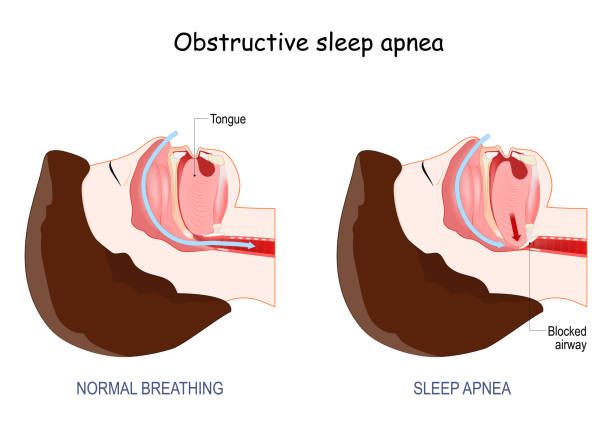Blog

January 28, 2025
Financial Sense Newshour's Jim Puplava explores the growing issue of dementia and Alzheimer's, which affects nearly 10 million people annually, with guests from the Center for Cognitive Resilience: Dr. Manna Semby, Dr. Erela Rappaport, and Michael Sanders. They delve into whether these conditions are hereditary, lifestyle-related, or a combination of both.

December 17, 2024
If you’ve heard the term “myofunctional therapy” and are wondering what it means, you’re not alone. This innovative, non-invasive approach to oral and overall health is gaining recognition for its benefits in addressing various conditions. Let’s dive into what myofunctional therapy is, how it works, and who can benefit from it. What is Myofunctional Therapy? Myofunctional therapy involves daily exercises that target the muscles of the face, tongue, and mouth to improve their function and establish muscle memory. These exercises are designed to help correct improper oral habits, enhance breathing, and support optimal jaw and facial development. Why is Myofunctional Therapy Important? The function of your orofacial muscles (those in your face and mouth) plays a crucial role in: Breathing: Proper tongue posture and muscle function encourage nasal breathing, which is healthier than mouth breathing. Swallowing/chewing: Myofunctional therapy can help correct swallowing and chewing patterns that may impact dental health or digestion. Sleep: Therapy can reduce snoring and improve symptoms of obstructive sleep apnea. Speech: Enhanced muscle coordination may alleviate certain speech issues. Jaw and palate development : dysfunction of the oralfacial muscles can hinder the development of the jaw and palate, creating less room for the tongue which can make you more susceptible to sleep/breathing disorders and poor oral health. Improving functionality in these areas in turn can positively impact your general health and quality of life. Who Can Benefit from Myofunctional Therapy? This therapy is effective for a wide range of people, including but not limited to: Children: To address habits like thumb sucking, mouth breathing, or tongue thrust, which in turn can affect the proper development of the mouth and jaw. Adults: For issues like snoring, sleep apnea , or TMJ pain . Orthodontic Patients: To enhance results and maintain alignment after braces. What to Expect in a Myofunctional Therapy Session During a session, you’ll work with Richell, our myofunctional therapist who will assess your oral and facial muscle function. She’ll guide you through customized exercises aimed at improving muscle coordination and strength. Regular practice is essential to see long-term benefits. Why Choose Myofunctional Therapy at Our Practice? At our practice, we integrate myofunctional therapy with your daily life and health history, for a comprehensive approach to your health. Our skilled therapist collaborates with other health professionals to ensure your therapy supports both oral and overall wellness.

December 4, 2024
Obstructive sleep apnea (OSA) increases the risk of dementia through mechanisms like oxygen deprivation, poor sleep quality, inflammation, and vascular damage. Learn how untreated OSA can affect brain health and cognitive function, and why early diagnosis and treatment are crucial for reducing dementia risk.

December 4, 2024
The connection between sleep and brain health is undeniable, and recent research highlights a critical link between obstructive sleep apnea (OSA) and an increased risk of dementia. While OSA disrupts sleep and oxygen flow, effective treatment may not only improve your quality of life but also play a role in protecting your brain from cognitive decline. Let’s explore the relationship between OSA and dementia and how addressing this common sleep disorder might safeguard your cognitive health. The Link Between Sleep Apnea and Dementia OSA occurs when your airway becomes blocked during sleep, causing interruptions in breathing and reducing oxygen levels in your body. These episodes can happen dozens of times per night, fragmenting sleep and depriving the brain of oxygen. Over time, untreated OSA contributes to several factors that increase the risk of dementia, including: Chronic Oxygen Deprivation : This damages brain cells, particularly in areas responsible for memory and cognition. Poor Sleep Quality : Fragmented sleep interferes with the brain’s ability to clear harmful waste, like beta-amyloid plaques associated with Alzheimer’s disease. Inflammation and Vascular Damage : OSA triggers systemic inflammation and can lead to cardiovascular issues, both of which negatively impact brain function. Studies have shown that individuals with untreated OSA are at a higher risk of developing mild cognitive impairment (MCI), a precursor to dementia. How Sleep Apnea Treatment Can Protect Your Brain Addressing OSA can reverse or reduce many of the factors contributing to cognitive decline. Here’s how treatment helps: 1. Restoring Oxygen Flow Treatments like CPAP machines and oral appliances keep the airway open during sleep, ensuring steady oxygen delivery to the brain. This prevents the damage caused by repeated drops in oxygen levels. 2. Improving Sleep Quality Effective OSA treatment allows for deeper, uninterrupted sleep. During these restorative phases, the brain clears toxins and consolidates memories, critical processes for long-term brain health. 3. Reducing Inflammation By addressing the root cause of OSA, treatment lowers systemic inflammation that can damage brain cells and increase dementia risk. 4. Enhancing Cardiovascular Health OSA treatment reduces strain on the heart and blood vessels, improving blood flow to the brain and protecting it from vascular-related cognitive decline. The Role of Oral Appliance Therapy Oral appliance therapy is a convenient and effective treatment option for OSA. These custom-made devices gently reposition the jaw to keep the airway open during sleep. They are a comfortable, portable alternative to CPAP machines, particularly for patients who find CPAP difficult to use. Studies have shown that consistent use of oral appliances improves oxygen levels and sleep quality, potentially reducing the risk of cognitive decline. Why Early Intervention Matters Detecting and treating OSA early can have a profound impact on long-term brain health. If you or a loved one snores, wakes up feeling unrested, or experiences memory lapses, it’s worth discussing a sleep evaluation with your dentist or doctor. Take Control of Your Brain Health Today While more research is needed to fully understand the relationship between OSA treatment and dementia prevention, the evidence is clear: treating sleep apnea improves sleep quality, restores oxygen levels, and supports overall brain health. If you’re concerned about OSA and its potential impact on your memory or cognitive function, we’re here to help. Contact our office to schedule a consultation, learn about at-home sleep testing, and explore treatment options like oral appliance therapy. Your brain is worth it. Start prioritizing your sleep health today.

December 4, 2024
Your dentist can spot early signs of obstructive sleep apnea (OSA) that might be missed by doctors. Learn how oral health issues like bruxism, dry mouth, and a scalloped tongue are linked to sleep apnea and why early detection and treatment are crucial for your overall health and well-being.
Hours & Address
Mon - Wed: 8:00am - 5pm
Thu: 9am - 1pm
Sat: Appointment Only
15706 Pomerado Road Suite 205 Poway, CA, 92064
Navigation Links
Hours & Address
Mon - Wed: 8:00am - 5pm
Thu: 9am - 1pm
Sat: Appointment Only
15706 Pomerado Road Suite 205 Poway, CA, 92064
Navigation Links
Hours & Address
Monday: 8 AM - 6 PM
Tuesday: 7 AM - 5 PM
Wednesday: 8 AM - 5 PM
Thursday: 7 AM - 3:30 PM
Friday: 9 AM - 5 PM
Sat: Appointment Only
15706 Pomerado Road Suite 205 Poway, CA, 92064
Navigation Links
Hours & Address
Navigation Links
Hours & Address
Monday: 8 AM - 6 PM
Tuesday: 7 AM - 5 PM
Wednesday: 8 AM - 5 PM
Thursday: 7 AM - 3:30 PM
Friday: 9 AM - 5 PM
Sat: Appointment Only
Navigation Links
© 2024 All Rights Reserved | Complete Health Dentistry of SoCal







